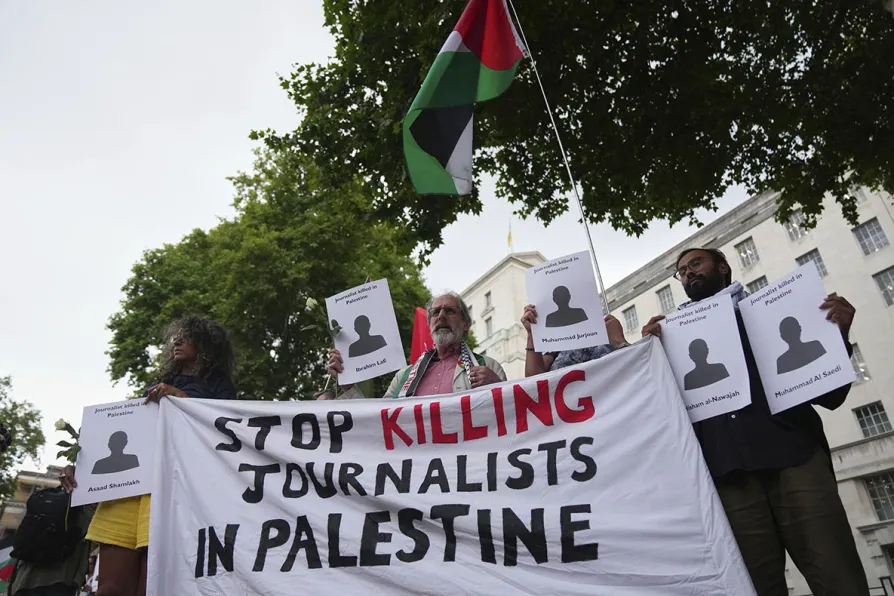Error message
An error occurred while searching, try again later.
 Protesters hold placards and flags during a demonstration held by the London Freelance branch of the National Union of Journalists to honour journalists killed in Gaza, opposite Downing Street in London, August 27, 2025
Protesters hold placards and flags during a demonstration held by the London Freelance branch of the National Union of Journalists to honour journalists killed in Gaza, opposite Downing Street in London, August 27, 2025
JOURNALISTS are more at risk now than at any time in recorded history, delegates at the TUC Congress heard today.
Moving a motion on standing in solidarity with international journalists, NUJ general secretary Laura Davison said that no worker should “pay with their life for simply doing their job.”
At least 122 media professionals were killed around the world in 2024, according to the International Federation of Journalists.
In Gaza, about 235 media workers have been killed since Israel’s genocide began in October 2023, according to local media organisations.
Ms Davison said: “Journalists are being targeted and killed by Israeli forces.
“Many are freelance, young journalists, women journalists — [one of them] pregnant, trades unionists, [and] alongside them: their families, civilians, workers in other trades — your trades.
“This is the deadliest time for journalists in recorded history.”
The union’s demands are simple, she said: refusing to accept the killing and targeting of journalists globally, as well as the immunity given to those who do.
“We do not accept that death is a price to be paid for doing your job,” Ms Davison said, calling for an investigation by the International Criminal Court into the targeting of journalists by Israeli forces, and Israeli authorities to be held accountable.
Calling for press freedom in Gaza, she said: “International journalists must be allowed access to undertake work alongside their Palestinian colleagues, to whom we owe an enormous debt.
“The adoption of a binding UN Convention on the safety and independence of journalists and other media professionals [is needed].
“In the last six years, more than 600 journalists have been killed around the world. Nine in 10 cases remain unpunished. Impunity reigns.
“Hundreds of journalists are imprisoned daily, attacked, beaten, detained, harassed and threatened.
“There are threats to digital safety with cyber attacks, hacking, online harassment, especially of women journalists, all creating a safety crisis for news professionals.”
Ms Davison said that while Congress had heard of “horrendous examples” of abuse, injury and death to members across the movement, “journalists are a vulnerable category, targeted on account of their profession.”
“No worker should have to face that,” she said.
The motion called for the trade union movement to continue to be vocal in its solidarity for journalists worldwide, including in Gaza, Ukraine and Afghanistan — extending to women journalists working under oppressive regimes worldwide.
It passed unanimously.










